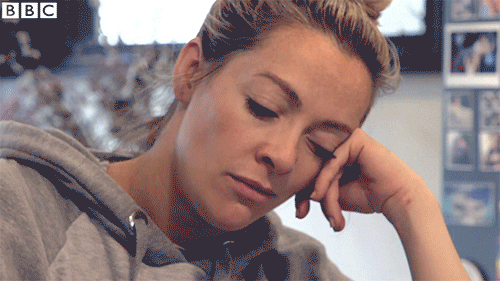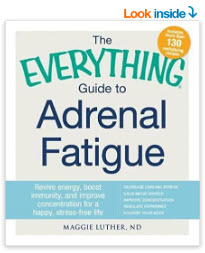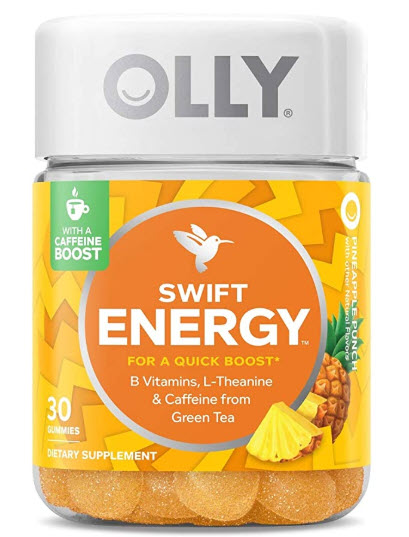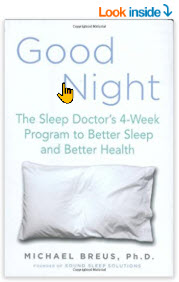Why We Are Tired All The Time
By Michael J Breus – Ph.D., Psychology Today

A few things to know about combating a lack of sleep
Something grabbed my attention this week: a new survey from the National Sleep Foundation shows millions of Americans are sleepy. I’m talking about consistently tired, where it’s something they’re dealing with multiple days per week.
If you rely on a good cup of coffee at noon or find a way to sneak in a quick nap after lunch to get that pep back in your step, you already know what I’m talking about.
Let’s go over the stats that stood out from the NSF’s survey.
How Often Are We Tired?
If you routinely feel run down, don’t worry — you’re far from the only one. The average American adult, according to the NSF’s Sleep in America poll, reported being sleepy three days per week.
Women reported being tired a little more often than men, with female respondents saying they’re tired 3.4 days per week on average. Men, on the other hand, were tired 2.7 days per week on average.
 Spending half of your week tired is eye-catching enough, but this really stood out to me: 44% of respondents said they’re tired between 2-4 days per week, and another 28% said they’re sleepy 5-7 days per week. Overall, that means 72% of the population, according to the survey, is sleepy multiple days per week.
Spending half of your week tired is eye-catching enough, but this really stood out to me: 44% of respondents said they’re tired between 2-4 days per week, and another 28% said they’re sleepy 5-7 days per week. Overall, that means 72% of the population, according to the survey, is sleepy multiple days per week.
This may sound like a simple byproduct of living a busy lifestyle. Between your career, raising kids and finding a little bit of time for yourself, you’re probably thinking, “Of course I’m tired!”
Still, being routinely sleepy isn’t as harmless as it seems. In short: we don’t function as well when we’re tired. Studies have shown being tired increases your risk of injury both at work and away from the office hurts your work performance, and can even hamper your sex drive.
The Everything Guide To Adrenal Fatigue
by Maggie Luther
Stress Makes Sleepiness Worse
Glaringly, the survey showed stress and sleepiness were closely linked; the more stressed a respondent reported they were, the more likely they were to be sleepy several days compared to participants with lower levels of stress.
People with mild or no stress reported feeling sleepy on average 2.3 days per week, according to the results. With moderate stress, that figure jumped to 3.6 days on average and increased again to 4.6 days for those with severe stress.
How stressed a participant was often boiled down to their age and career status. Nearly 60% of respondents under 50 said they had moderate to severe stress; that figure dropped to 47% for people between the ages of 50 and 64, and dropped again to 32% for seniors. Meanwhile, working men and women reported moderate to severe stress 53% of the time, compared to only 34% of retirees.
Several studies over the years have looked at the relationship between stress and sleep. Researchers from UC Berkeley last year found sleepless nights can lead to a 30% spike in stress levels. Perhaps unsurprisingly, there tends to be a domino effect at play: poor sleep can make stress worse; stress is then linked to sleepiness during the day; that sleepiness can lead to poor performance at work — which itself can make anxiety tougher to deal with and impact your sleep habits at night.
Energy Supplement For Fatigue

OLLY Swift Energy Gummy Pineapple Punch
Chewable Supplement
Tips to Feel Less Tired During the Day
Alright, so the NSF survey shows most people are dealing with lingering sleepiness at least a few times each week.
But how are people dealing with this? According to the survey, the most common response for Americans is to simply “shake it off,” which was “often or sometimes” the approach 62% of the time. Other popular fatigue hacks included eating sugary snacks for a quick energy boost, taking naps and drinking caffein ated drinks.
ated drinks.
I get it, sometimes you just need whatever is going to help get you through the day. But there are better ways to counter sleepiness than always leaning on unhealthy snacks.
Here are a few tips to remember when it comes to fighting midday sluggishness:
Get Enough Sleep: The best defense against sleepiness during the day is getting good sleep at night. First things first, it’s important to set aside enough time for sleep; 44% of the survey respondents said they simply didn’t have the time needed to get quality rest.
Exercise: Working out is a great way to naturally lift your energy level — especially if you can find a way to wedge it in before heading to work. It doesn’t take that much exercise to make an impact, either. Researchers from the University of Georgia found that after participants did 20 minutes of low-intensity exercise three times a week, their fatigue levels dropped 65% after six weeks.
Snack Smartly: Remember, your body, just like an engine, runs on what you put into it. Sugary foods and caffeinated drinks can help in the short-term, but can also lead to a crash later in the day. Try mixing in a few alternatives instead: unsalted nuts, including cashews, almonds, and pecans offer plenty of protein and healthy fats, making them an ideal snack; bananas, which are packed with vitamins and potassium, are one of the best fruits you can pick; and avocados, which are an excellent source of fiber, healthy fats and vitamins, will also make you feel full, without feeling bogged down.
If you’re one of the millions of Americans who, just like in the NSF survey, fights sleepiness multiple times each week, try these tips out — I think you’ll see results after a few weeks.
Source: psychologytoday.com
About The Author
Trending Blogs
- Why Today’s Young Men Are Running from Today’s Modern Women by Nancy Wilson
- 5 Ways to Stop Your To-Do List Anxiety And Actually Feel in Control
- The heart-warming story about Hachiko – A Dog who taught us about loyalty and love!
- The Myth Behind Why Being Busy Makes You Feel Important by Heather Picard
- How to Be an “Imperfectionist” By Stephen Guise
What makes us different from other inspirational/motivational online content providers is our monthly
Wave of iNspiration Showcase!
Each month the Showcase features a new Blog, Video, Book, and Quote, highlighting an inspirational, motivational, and educational topic from the industry’s most influential writers, bloggers, authors, and publishers.
 ↓
↓
Trending throughout iNation…
- Why Today’s Young Men Are Running from Today’s Modern Women by Nancy Wilson
- 5 Ways to Stop Your To-Do List Anxiety And Actually Feel in Control
- The heart-warming story about Hachiko – A Dog who taught us about loyalty and love!
- The Myth Behind Why Being Busy Makes You Feel Important by Heather Picard
- How to Be an “Imperfectionist” By Stephen Guise
- Leadership Excellence – A Model for Sustained Success By Dr. Philip A. Iannuzzi, Jr. (Retired Colonel, U.S. Air Force)
- We Have A Manchild Problem, And It’s Scaring Everyone
- 7 Reasons You Are Unsuccessful. It Isn’t Because You’re Lazy. It’s This.
- If Technology Connects People Why Are People Lonelier Than Ever
- We’re all beginners in life who’ve been given a lot of advice…just be sure not to ignore these 7 powerful pieces!
 Spending half of your week tired is eye-catching enough, but this really stood out to me: 44% of respondents said they’re tired between 2-4 days per week, and another 28% said they’re sleepy 5-7 days per week. Overall, that means 72% of the population, according to the survey, is sleepy multiple days per week.
Spending half of your week tired is eye-catching enough, but this really stood out to me: 44% of respondents said they’re tired between 2-4 days per week, and another 28% said they’re sleepy 5-7 days per week. Overall, that means 72% of the population, according to the survey, is sleepy multiple days per week.


 ated drinks.
ated drinks.

 ↓
↓

